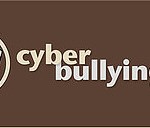One of my favorite books is “Why courage matters: The way to a braver life,” by John McCain. In it he chronicles heroic tales of persons who risked their lives for others, with no regard to their own safety.
These people exhibited perseverance, faith, camaraderie, loyalty, and what McCain terms “conscientiousness of duty.” These brave souls were the standard bearers of human dignity.
The behavior that we witness in the cyber world is a far cry from that described in his book. McCain. Bashboards, e-mail, sexting (sending sexually explicit messages via cell phone or IM), happy slapping (filming of violent events – e.g., fights – on mobile phone), voting/polling booths used to harass and denigrate, surreptitious picture taking and dissemination in places in which privacy is expected, publicly shaming an individual, pretending to be someone else and sending hurtful or embarrassing messages, telling someone’s secrets, and spreading rumors are all acts of cowardice.
“Cyberbullying involves the use of information and communication technologies to support deliberate, repeated, and hostile behavior by an individual or group that is intended to harm others.” –Bill Belsey
Before posting on the internet, you may want to keep the following in mind (modified and adapted from www.cyberbullying.ca):
- Be respectful of other people’s privacy
- Do not send messages, gossip, facts or photos of other people without asking them first
- If you wouldn’t say it to the person’s face, don’t send it [note: would you want someone posting something similar about you?]. Complaints should be addressed face to face, and not in a public medium.
- Be polite
- Don’t use offensive language or act in a confrontational or abusive manner – it
- Pictures taken in places where privacy is expected (e.g., in a bedroom, a bathroom, or locker room) should not be distributed or posted online
- If someone treats you rudely or meanly – do not respond. Online bullies are just like offline ones – they derive satisfaction from you response.
- Never send a message to others when you are angry – this is know as “flaming.” Wait until you have had time to calm down and think. Do your best to akesure that your messages are calmly and factually written.
- Do not upload unauthorized videos to social networking websites (such as YouTube). Everything you post online can be seen by someone and you never know who’s reading it or who may copy it and send it on.
The anonymity of cyber space allows individuals to conceal their true identities, their intentions, and to mask their human decency. It’s a cloak for bad behavior that would be non-existent in the absence of the internet. Let’s instead use technological tools for the betterment of other people, and not for their demise. Choose to be courageous, and not cowardly.





Recent Comments